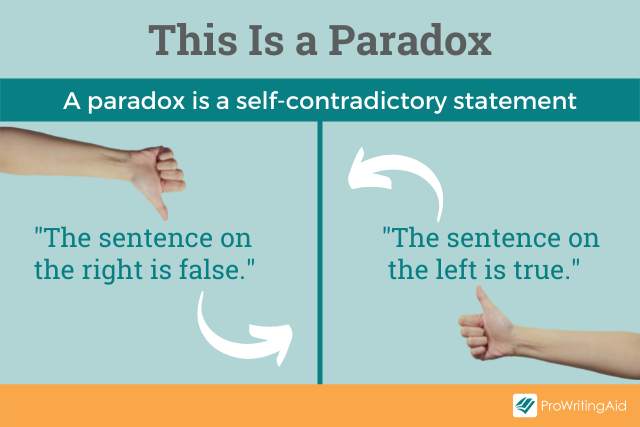10th Honors Lit - Vocab Terms
1/30
Earn XP
Name | Mastery | Learn | Test | Matching | Spaced |
|---|
No study sessions yet.
31 Terms
Alliteration
the occurrence of the same letter or sound at the beginning of adjacent or closely connected words.
“good grief” or “red rose”
Anaphora
the repetition of a word or phrase at the beginning of successive phrases, clauses, or sentences.
“So many places, so little time” or “Go big or go home”
Connotative Diction
collection of feelings or associations you have with a word.
“Smell” vs “Aroma” vs “Odor”
Denotative Diction
the most basic, literal, and direct interpretation of a word, also known as its 'dictionary definition'. It's devoid of emotion, personal interpretation, or connotation.
“I drank the wine. The wine was good.”
Parallelism
when words or phrases are repeated in succession and are similar in both grammar and meaning. they could also have similar endings (like -ing).
"I came, I saw, I conquered" or “She loves cooking, reading, and dancing.”
Allusion
an indirect or passing reference to something outside of the work.
“She was the Einstein of the class” or “forbidden fruit” or “It’s like a trojan horse.”
Antithesis
the rhetorical contrast of ideas by means of parallel arrangements of words, clauses, or sentences. essentially, placing two opposite ideas right next to each other - and highlighting the difference to make a point.
“When the rich wage war, it’s the poor who die.” or “it was the best of times, it was the worst of times.”
This is a type of juxtaposition.
“Hope for the best, prepare for the worst.”
Apostrophe
addressing or speaking to someone, or something, not present
“Oh nature, thou art my goddess” or “Blow, winds, blow” or “Hello Darkness, my old friend. I’ve come to talk to you again.”
Euphemism
Substituting your words for something less insulting.
“He passed away last month.” or “They are between jobs.” or “She is quite outspoken”
Hyperbole
A major exaggeration or overstatement.
“He’s a thousand years old.” or “That weighs a ton!” or “Their brain is the size of a pea.”
Imagery
A literary device that uses all five senses to describe what’s happening, and to paint a picture of the scene
“The road had a rough, gravelly surface.” or “Brightly colored hot air balloons drifted through the clear sky.”
Irony
Saying the opposite of what is expected, or what is the actual meaning of the words.
“We must arm ourselves to prevent war” or “The pilot has a fear of heights”
Juxtaposition
Placing two separate things or ideas next to or near each other in order to highlight their differences.
“Luxury yachts sailed past the rackety fishing boats in the harbor” or Juliet and her older, less optimistic nurse.
Litotes
A deliberate understatement
“The nuclear bomb might ruin your day” or being stabbed and responding with, “I might need a bandaid.”
Metaphor
Describing something by saying it is something else
“After they spoke, he turned into a tomato!” or “Life is a rollercoaster” or “She lights up his life” or “He flared up her temper”
Oxymoron
Words next to each other that wouldn’t make sense together.
“The test was awfully easy” or “There was a deafening silence” or “almost exactly”
Paradox
A self contradictory statement that results in circular reasoning
“My weakness is my strength” or “Love hurts so good” or “The end is just the beginning” or “You need to lose yourself to find yourself”

Personification
An object or concept is given human traits.
“The moon smiled down at the humans below.” or “The trees danced in the wind, the pathway rolled down the hills” or “The angry bruise bloomed colors of blue and purple” or “My heart competed with my head”
Rhetorical Question
A question for which no answer is expected
“Could you imagine that?” or “What’s not to like?” or “Are you kidding?” or “Who doesn’t love a good story?”
Simile
A literary device that compares to things to describe them
“As he swam, he was like a fish in the water.” or “She fought like a cat.” or “You are as brave as a lion”
Synecdoche
A part is used to represent the whole
“All hands on deck!” or “That’s a nice ride” or “My cousin is behind bars right now.” or “They have eyes everywhere.”
Motif
A recurring element that conveys a theme
Fire in fahrenheit 451 or a charming prince in every fairytale
Assonance
The repetition of vowel sounds
“Cold Gold, High tide, Sweet dreams, Bright night lights.” Or longer examples: “The cat had a snack, clap your hands and stamp your feet, Try to light the fire."
Consonance
Repetition of consonant sounds within a sentence or phrase
“The fair breeze blew, the white foam flew, the furrow followed free.” or “Let the boy try along this bayonet blade, How cold steel, and keen with hunger of blood.”
Asyndeton
An Underuse of conjunctions. Typically no ifs, ands, or buts.
“He went to the store to buy bagels, cheese, bread, milk.” or “They dove, splashed, floated.”
Colloquial language
an informal word or expression used in casual conversation or writing that is unique to a specific region, time period, or language
“Nice kicks (in reference to shoes)” or “I’m going to crash as soon as i go home” or “What a badass”
Note - they differ per time period. Essentially, it’s slang.
Anastrophe
The deliberate changing of word order for emphasis. To be more specific, subject-verb-object becomes object-subject-verb. Think yoda.
“The greatest teacher, failure is.” or “Kind, she was not.”
Ethos
an appeal to ethics. tries to be more credible. establishes personal credentials, gets the audience to trust you.
“I am a good man.”
Logos
an appeal to logic and reason. arguing based off reasons and facts
“According to…”
Pathos
An appeal to emotion. Inspires an emotional response to get the audience to feel.
“If you cared about my safety, you’d buy me a phone.”
Syntactic
word order